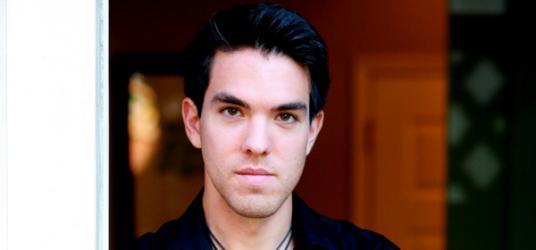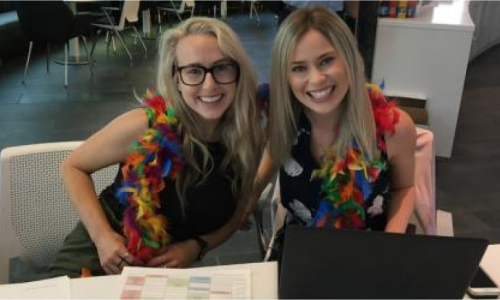
With the spring semester coming to an end, and convocation around the corner for many of us (myself included), one topic of conversation keeps coming up: how can I make sure that I get a job after graduation? And, perhaps more importantly, how can I make sure that it’s a worthwhile position commensurate with my skills?
These conversations remind me of a night in 2011 when I ran into a friend on my way to see In Medias Res (an awesome local band!). She introduced me to her friend, Kelvin Redvers, who was 24 at the time and already working for CTV. Fascinated as I am by people’s career stories, especially those of recent grads, I couldn’t suppress my curiosity, so I arranged an information interview with him to learn more about his career to date.
Below, you’ll find a tantalizing glimpse into the mind of someone who was lucky enough to discover his passion at an early age, and worked diligently through his undergraduate years to make sure he developed the skills required to succeed in his field of interest—film and television.
Did you have a defined plan for your future or did you just sort of stumble into this industry?
When I was in high school, I had a defined plan as to what I wanted to do and the path that I would follow. I believed that it would only be a matter of time before getting into the film industry and you know, you're kind of young and naive, and think everything will fall into place. But going through university I realized that to believe that there's only one path that you have to go down-- like all or nothing-- isn't really healthy. But you need to kind of move yourself in a certain direction, in the vicinity of where you want to go, and be open to what life presents you.
So you wanted to be in the vicinity of the film industry?
Before, I believed that all I wanted to do was make narrative feature films, but I ended up really enjoying doing documentaries, specifically to do with aboriginal topics, because I am aboriginal myself. And all through university, even though I wasn't exactly sure where I wanted to go, I was centering my life around that as something that I wanted to do, and I moved in that direction.
How did you come across this position?
Sometimes things just fall into place. It's just the way it works--sometimes you get lucky. But as I said earlier, I really poured myself into doing film work, doing documentary work, that sort of thing, all through high school and university. I was able to get some success even while I was at SFU. Films I made have gone on to do well at festivals, partly because I was trying to push them out there into the world. I made a documentary at school and thought: okay, can you get this out there? I was able to find distributors so they were broadcast on TV and also sold to colleges and universities around Canada. I was doing those things just because it's what I believed in, but it also helped me build a resume for when I did end up in the workforce. And the more that you try to get those accolades or experiences then that's what’s going to get you the job. I didn't know of this position even when it came up, but I'd worked a lot in this area and was able to build up my experience. When my current boss was looking for someone to fill the position and was talking to someone I worked with previously, she passed my name along and some of the stuff I had done. That led to him inviting me to send in a resume and cover letter. Everything I'd done at SFU--like keeping my grades up and doing all the volunteer stuff, and I'd worked with the First Nations Student Association--it sort of all converged. When this position opened up, it just seemed that I'd be really suited to it, and CTV thought so too I suppose, and they did a phone interview and that went very well so they decided to offer me the job. This is all 3 months after I graduated.
That's pretty wonderful.
Yeah, I realize it doesn't always happen that quickly. But, on the topic of being young: I am only 24, when I started I was 23, and most of the other people I work with are much older, and sometimes you do run into situations where people almost doubt your ability, just because you are a lot younger. What I found to combat that is always just to be firm in your ability—not to be cocky or anything—but simply to put your foot down, and know that you’re able to do this job, or able to bring something, regardless of your age. I think people appreciate that firmness. When you’re fresh out of school there’s definitely a lot you don’t know, but as long as you’re willing to soak in what you need to know and use what you do know you can still make a valuable contribution.
It’s a trade-off: you have a fresh creative view on things because you are younger.
Yeah exactly, so being young can definitely be a strength as well.
Since I’m publishing this article two years after initially contacting Kelvin, I was curious to find out more about where he’s at currently in his career. His incredible energy and passion have allowed him to have one of his movies, ‘The Dancing Cop’, screened at this year’s Toronto International Film Festival. You can follow Kelvin on Twitter at @kelvinredvers.














